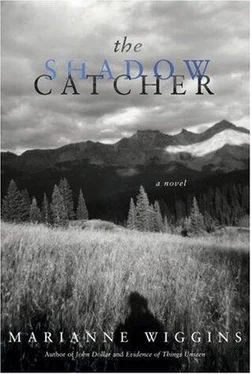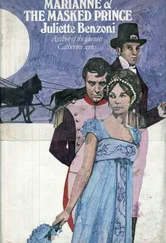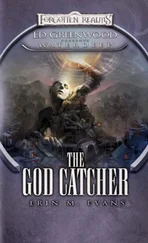I lived.
Before the Train, the grasslands teemed with herds of buffalo so thick and mythic in their numbers it was said that when they ran they ran as thunder raining on the earth. The men who hunted them could hear them coming miles away, could feel the ground around them shake and rumble with their roar as they barreled past, and maybe that’s the sound I think I hear inside a train, the sound of animals, a sound the living earth once made, a plaint, the sound of history’s demand to be remembered.
Or maybe I just love the sound the whistle makes, that twisted chord, rooted in C major or B minor but ranging, concordantly, some nights, to the uncharted note of the undiluted wanderlust that springs from sadness.
This is, singularly, a North American note, a U.S. of A. site-specific sound.
European trains sound like audible Twinkies, air-infused and artificial.
But an American , running like an unchained herd of half-a-ton horned animals across a plain, well, my friend, that’s show biz, rock ’n’ roll and jazz and ska and rap and Beat and MGM all tied into one:
The sound my nation makes.
And I can tell that Lester is trying to keep me from the road because he keeps bringing up new subjects for discussion.
“My daughter’s coming home tomorrow.”
“Lucky you,” I say. “I’d like to meet her.”
I’m already in the driver seat and he’s standing by the passenger side, in the hospital parking lot. He hands me a business card from his daughter’s craft cooperative through the open sunroof.
“I’ll take her to Clarita’s. Catalogue what’s there. She can give Clarita good advice.” He looks off to the horizon, then continues: “I was supposed to go out to the Paiute reservation this afternoon. See some craft people there. But I’ll go see Clarita, too. She’s upset there won’t be any funeral.”
“Colonel’s decision, Lester.”
“I know…”
He hands me another card on which he’s written his mailing address and phone number.
“You should come and visit. Maybe in the spring. At shearing.”
I blush because I realize I’ve never asked him what he does, how he makes a living, I had committed the classic Anglo thing, consigning Lester to the job of being Indian, as if his race were his profession.
“I farm sheep.”
“—of course you do.” What better shepherd do I know? “I’m great with sheep,” I lie.
He sees right through me, I can tell, because next he says, “You’ll have to change the book.”
I’m not sure what he means until he adds, “The truth about your Mr. Curtis.”
“‘Print the legend.’” I recite.
“Truth is better.”
“— whose ?”
He nods in recognition and then tells me, “Some things are not open to interpretation.”
“A person’s life, Lester.”
“What were these fellows looking for, do you think?”
By “fellows” I guess he means Curtis and Edwards.
But he may also mean my father.
“I don’t know. Are you going to try to tell me they were searching for the Truth?”
He shakes his head.
“I think it’s impossible to know another person’s motives. Practically impossible to really know our own,” I tell him.
“Maybe,” he concedes. “When you come to my place I’ll take you to see the Lands. And then you’ll make a Vision Quest.”
“That is something that I promise we will do,” I pledge.
He sets a bundle wrapped in newsprint on the seat beside me.
“Medicine smoke. Branches from the land I live on. Find some place on your journey home and stop. And set these leaves on fire. Some place where you can be reminded of your friend. And of our friendship.”
The packet has already perfumed my car with piñon, sage and mesquite, and as I head out for the road I’m enveloped in an incense that evokes a certain kind of West, high desert, the West made famous by the movies — Red Rock, Monument Valley — Navajo Land.
It’s a land best wedded to the buffalo, not cattle, where sheep and goats can scratch a bare subsistence from the scrappy brush but where man’s soul is better fed than his stomach. In parts, the wind can rip a person into shreds and finding shelter from one element can only leave you open to another — lightning, hail, snake, bear, sun, vulture, cougar. The Navajo named their clans for what could kill them.
And the only terrorists they knew wore hats, rode horses.
Safety was in numbers, the Navajo larger than the populations of the tribes around them, but safety came with ritual, as well, in knowing one was part of a cohering pattern, part of something greater than oneself. A renegade was truly that, a broken thread, an anomaly outside the unifying fabric. Each man would leave the tribe on his vision quest at the beginning of adulthood, only to return, again, as part of the tribe, once he had experienced the vision, specific to himself, of his spiritual identity. Armed with nothing but his wits and pride and a crude weapon, a boy began the journey that could last a week, a month or half a year. When he returned, he was a man. Or so Legend has it, because whether you were living before 1492 or after the atomic bomb, if you’re going to understand your part in the fabric of Earth’s life, then you have to take your quest for understanding to the source and live on earth as if your life depended on it — on its air, its water, its futurity.
CURTIS EDWARDS DIED THIS MORNING IN THE PRESENCE OF HIS SON.
That’s why Lester gave these branches to me — to perform a ritual, the ritual of cleansing fire, the spirit medicine of smoke.
And there are plenty of places on this route out of Nevada — there’s nothing here but place — where I could pull off down a dusty road to find a quiet spot, but as I head West for California on the highway running next to the Union Pacific tracks, it occurs to me that, for a good portion of his life, before that fateful morning in the Shenandoah National Park, Curtis Edwards was a porter, working for The Road, riding rails. He was a train man.
Head for Barstow , I tell myself.
If he had been working the transcontinental passenger line, chances are he would have passed through Barstow one way or another, it would have been a place he would have known.
I don’t stop at Baker, don’t stop at The Mad Greek, press on another hundred miles and exit I-15 at Route 66. The sun has just passed its apogee, tilting toward the West and there are hardly any shadows on the desolate Main Street to soften its appearance of stark and blasted bankruptcy.
A couple bars and resale stores are open but most buildings are vacant, either out of business or going and the feeling on this stretch of 66 down to the railroad yard is one of failure and foreclosure.
A trainyard without moving trains is certainly a sad and haunting place and I realize as I park the car that what thrills me about trains is not their size or their equipment but the fact that they are moving , that they embody a connection between unseen places. A train at rest is just another big machine but a train moving through a landscape is a process, and it carries with it all the mystery of journey, like a promise.
There are a couple stranded engines on the sidings, but instead of moving trains what the Barstow station has this afternoon are buses, two of them with Mojave Sun Country Tours written on their sides, disgorging tourists of the most obsessive kind, the ones who’ll go to any length to photograph a Harvey House or a red caboose.
There are too many people here for me to carry out a ritual so I leave the packet on the seat and make my way around the tourists on the platform, down, onto the tracks.
Читать дальше











